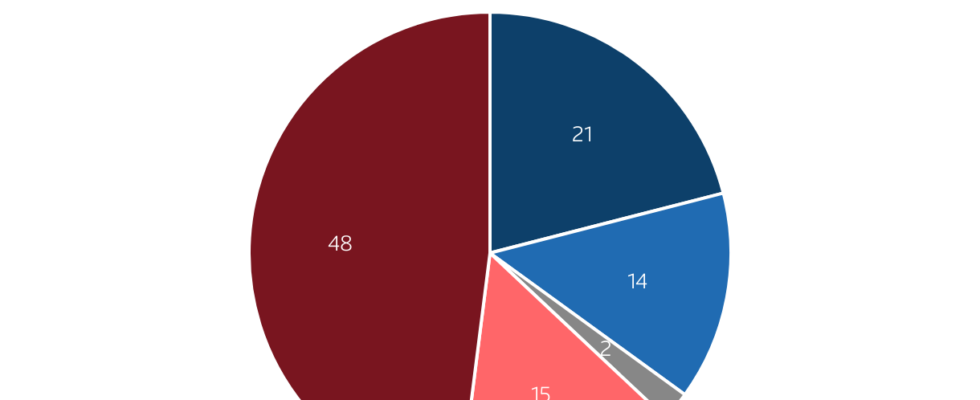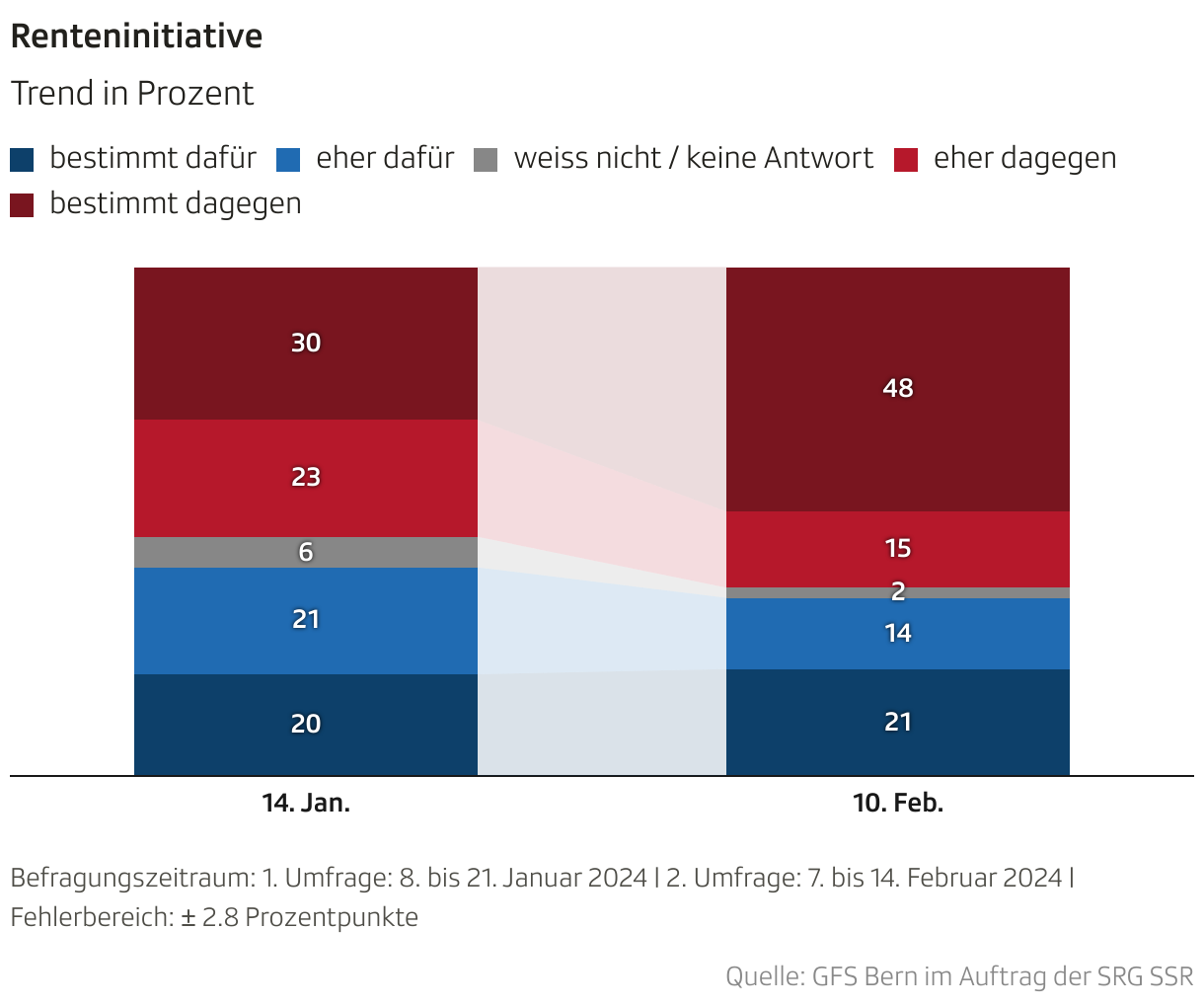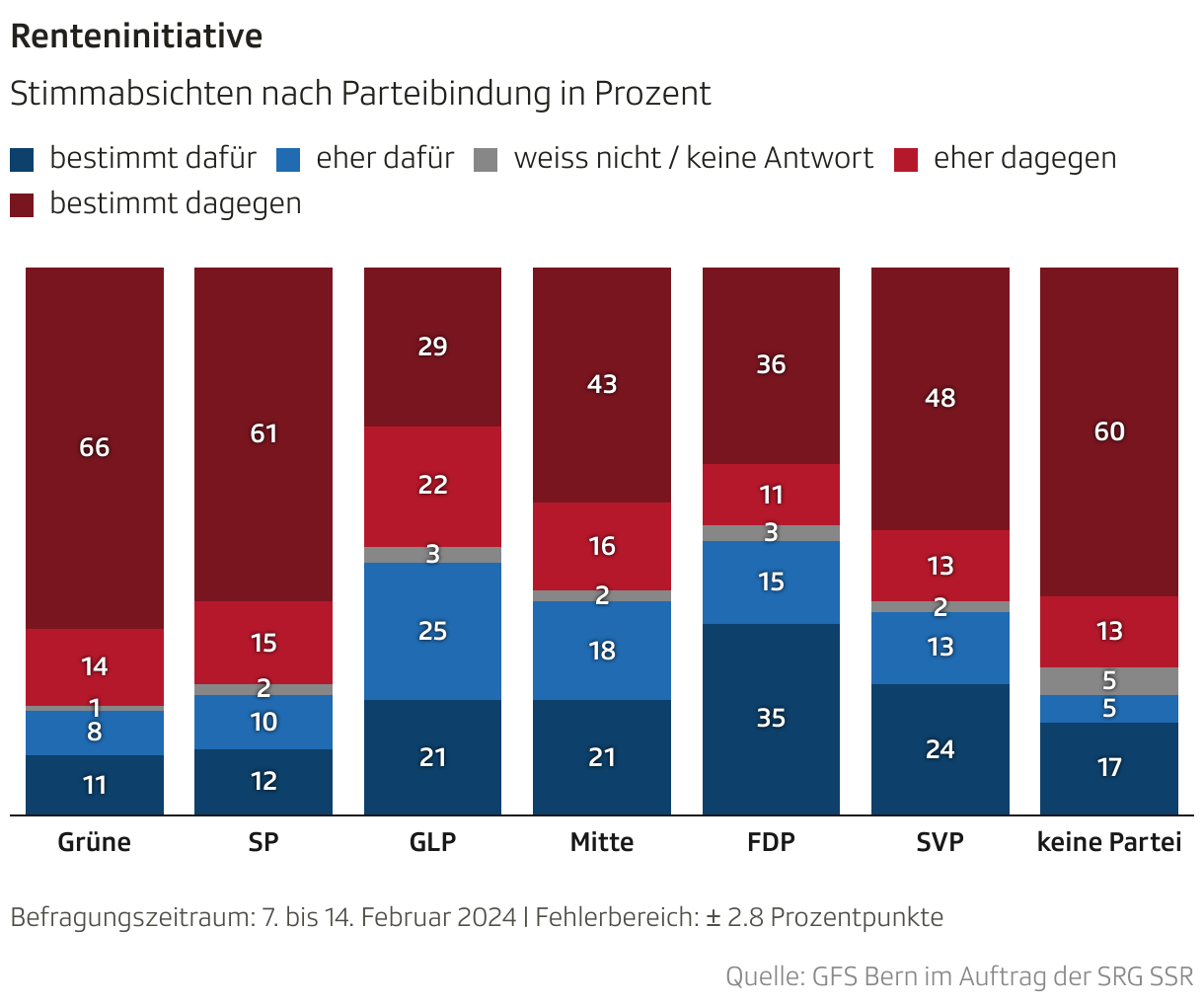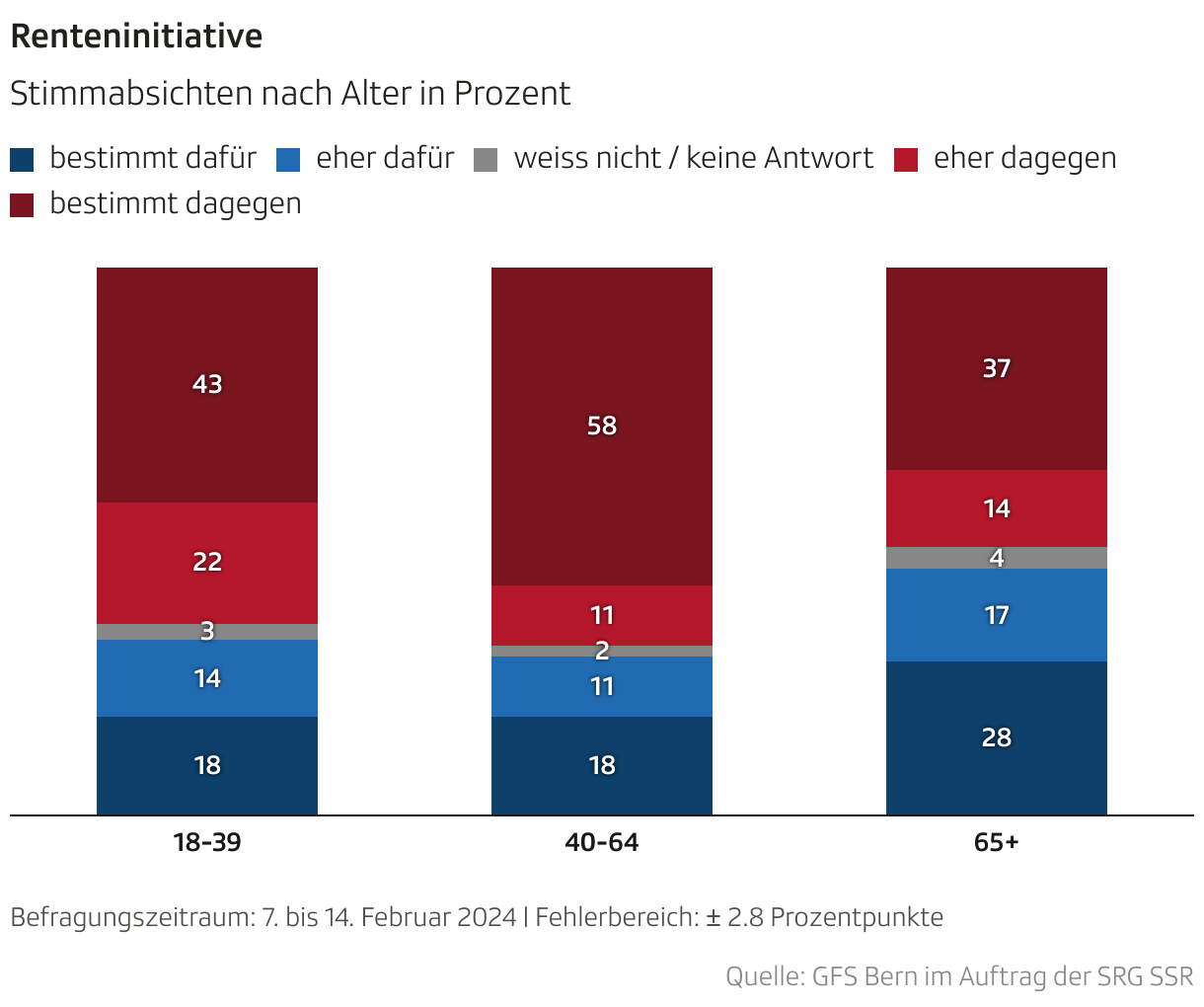- In the second SRG survey, 63 percent of those surveyed rejected the pension initiative. 35 percent want to put a yes vote in the ballot box.
- The increase in the retirement age is currently rejected by all electorates – except for the FDP base.
- The pension initiative therefore has little chance of being approved by voters on March 3rd.
- When it comes to the initiative for a 13th AHV pension, however, the race is completely open.
Started modestly and lost again heavily in the course of the campaign: the popular initiative to increase the retirement age of young liberals is likely to be a losing battle on March 3rd.
Support for initiative erodes
The numbers speak for themselves: Compared to the first SRG survey from mid-January, the proportion of “no” has increased by nine percentage points, while approval has fallen by six percent.
The verdict from Lukas Golder from the GFS Bern research institute, which conducted the survey: “Based on our survey, we can say: A yes is practically no longer possible.”
A majority for the Young Liberals’ pension initiative can currently only be found among supporters of the mother party FDP. However, here too only 50 percent are yes.
Particularly in the left-wing camp, those surveyed are vehemently opposed to further raising the retirement age. But the plan is also having a difficult time with the base of the GLP, Center and SVP. In the case of the SVP, the base does not follow the national party’s Yes slogan.
Even the initial support from pensioners collapsed over the course of the campaign. Although they still have more sympathy for the pension initiative than younger voters, the majority are now also against it.
Solidarity with older employees
“We have no trends in all the groups examined. The normal scenario in such a case is that an initiative tends to lose even more support by the time the vote goes to the polls,” concludes Golder.
For the political scientist, the proponents’ main argument that only an increase in the retirement age can secure the AHV in the long term has lost its impact. The need to work longer is more controversial than it was a month ago, while difficulties faced by older people in working life are more emphasized.
The opposition successfully argues that top earners can continue to retire early. And older job seekers in particular would suffer if the initiative was accepted. The argument that many people are mentally or physically unable to work longer than 65 is also widely supported.
The Young Liberals can no longer hope for anything more than a respectable success. Given the clear majority, the pension initiative will hardly have a chance of being accepted at the ballot box on March 3rd.



